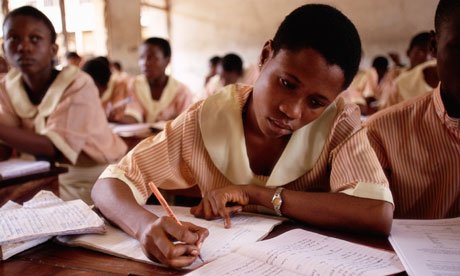The importance of education cannot be overemphasised a nation that is able to educate its youths will become more prosperous and equitable.
It has never been more critical to review the state of education in Nigeria, the strength of the system and the quality of our teachers. Over the years, access
It has never been more critical to review the state of education in Nigeria, the strength of the system and the quality of our teachers.
Over the years, access to quality education in Nigeria has been hugely dependent on one’s family’s socioeconomic circumstances, among other factors.
However, with the spread of the coronavirus disease, COVID-19, access to technology has become the ticket to continuing learning, further exacerbating the divide between the more advantaged and the less advantaged.
The outbreak of COVID-19 has had far-reaching consequences across the globe; nations are aggressively trying to contain the virus through home isolation and movement restrictions.
For Nigeria, the implications have been multi-faceted: most industries, including education, have been brought to a standstill as a result of government-led efforts to curb the spread of the virus.
The question of the future of education given the closure of schools has become more pertinent as millions of children across the country stay at home.
The burden of education for all is enormous; children under 15 years of age account for 45 per cent of the 171 million population.
Although primary school enrolment has increased in recent years, net attendance is only about 70 per cent. For the last few years, Nigeria has remained the country with the highest number of out-of-school children in the world with the latest figures estimating around 13.2 million.
This was before COVID-19 hit; so this number is likely to increase as things return to some semblance of normalcy.
Learning and teaching as we know it has changed. On Saturday May 30, I spoke at the T4Education conference on what the new normal will be for education during and post-COVID-19 in Africa.
This new normal is seeing teachers redesign and readapt the curriculum with an emphasis placed on relevant individualised learning.
COVID-19 has presented a silver lining and we should not miss the opportunity to redefine our new normal as we race to reach the Sustainable Development Goal 4 of ensuring inclusive and quality education for all in Nigeria and the rest of Africa.
As people feel powerless against COVID-19, it is important to remember that improving the state of our education system and ensuring continuous learning in these times does not lie on the government alone.
It requires innovation, flexibility, adaptability, investments and a coalition of efforts where everyone (government, the private sector, educators, parents, community members, teachers, local health authorities/practitioners) works together and takes joint responsibility in guaranteeing quality education and a safe environment for our children from pre-primary school to tertiary level.
Since the closure of schools, we have already seen laudable initiatives for continuous learning. The government in the most affected states have instituted initiatives, including online lessons, television and radio programmes.
Many individuals, schools, organisations and most especially our teachers have also risen to the occasion.
Bright Kemasuode, a teacher in Nigeria, recently collaborated with imams and pastors, using the public address systems of their religious houses to broadcast lessons to students, in order to ensure that learning continues.
In Kaduna State, Rejoyce Samuel is delivering learning packs, colouring books and stationery to her students.
She’s not leaving parents out either: she is translating instructions to the Hausa language and sending voice notes to parents so they can be part of the learning process of their children.
Precious Adedamola, in Ogun State, has digitised content on science, social studies and numeracy with adaptation to the Yoruba language for all her learners on a sim-enabled device available to all her students.
The level of innovation and creativity I have witnessed by our teachers over the past few months has been so awe-inspiring and this is how we are going to transform our education system and lift our continent to greater heights.
Imagine a scenario where all teachers in Africa are learning from one another, leading and adapting innovations relevant to their communities, while helping our children to learn regardless of where they might be on the map.
Our teachers are the answer to accelerating our development. They have the connection with communities, they have the trust of parents and families, they have the ears of local leaders and they have the hearts of children!
Our youths will also play a major role in this discourse, we need a critical mass of young leaders that will continue to rise as local leaders and role models equipped with the energy, ideas and solutions that can shape humanity, inspire transformational change and catalyse reform.
Africa has the youngest population in the world, with 60 per cent of its population under the age of 25, clearly and automatically the most energetic continent in the world.
The promises of our nations will be met through equipping our continent’s future generation with the skills, competencies, knowledge, tools, values and opportunities to fulfil their potential and shape our ever-evolving communities.
Source: Vanguard
Post Disclaimer
The opinions, beliefs and viewpoints expressed by the author and forum participants on this website do not necessarily reflect the opinions, beliefs and viewpoints of Anaedo Online or official policies of the Anaedo Online.

